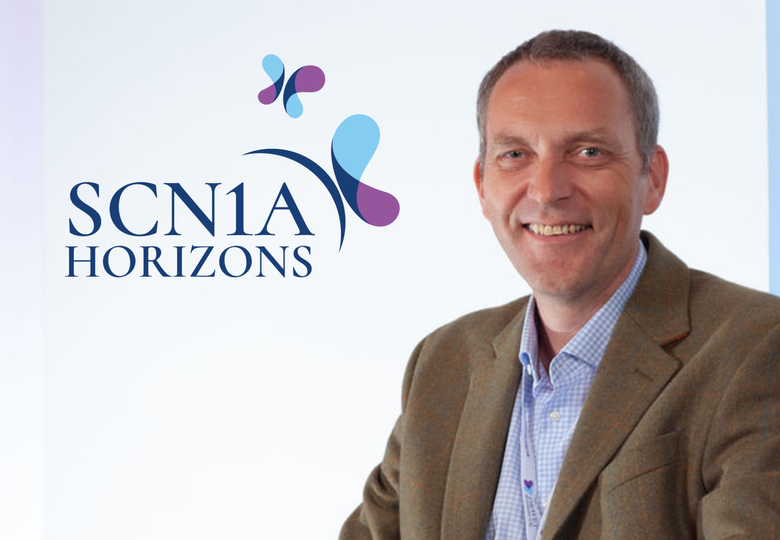Article: SCN1A Horizons Natural History Study
Published: June 2023
The ambitious SCN1A Horizons Natural History study will collect clinical standard of care, neuropsychological and caregiver experience data from up to 400 patients with Dravet Syndrome and other SCN1A-related epilepsies and their caregivers. Data will be collected longitudinally over a period of 2-3 years. Children and adults from across the UK will be invited to take part.
The study is sponsored by NHS Greater Glasgow & Clyde and hosted by the University of Glasgow. Leading the day-to-day running of this project will be Chief Investigator Prof Andreas Brunklaus (Consultant Paediatric Neurologist) based at the Royal Hospital for Children, Glasgow, who will be supported by a dedicated team of Paediatric Neurologists and Neuropsychologists from across the UK. In the article below, Professor Brunklaus gives an introduction to the study and describes its key aims.
"Using a prospective data collection design, the SCN1A Horizons study is paramount in informing our understanding of the key signs and symptoms of individuals with SCN1A-related epilepsies across the United Kingdom. It is an investigation in to determining reliable biomarkers that can give us a better understanding into disease severity as well as treatment planning. The study welcomes any patients with an SCN1A mutation including children and adults, regardless of disease severity or treatment regime. We hope that the use of standardized assessments will promote good quality standards of care for patients across the UK.
Funded by a combination of industry and charity contributions, the study design is set up to ensure that all data gathered belong to the clinical teams across the country. Any requests for sharing of anonymised data from external agencies, including funders, must be approved by the clinical stakeholders through utilisation of the Project Management Group, which will be set-up ahead of the start of recruitment. The study will also be informed by a key group of stakeholders who will make up the Steering Committee.

There will be representation from the clinical teams across the UK study sites, ensuring the data generated from this study is utilised for the greater good of the patients in advancing care pathways and treatment options.
Clinical visits will take place every 6 months for all study participants. The collection of data relating to seizure frequency and type will also be collected through utilisation of a caregiver-reported seizure diary, for 1 month following baseline visit, and 1 month prior to each subsequent visit for the duration of the study.
The investigation of neurocognitive development of study participants will be led by Professor Liam Dorris (Consultant Paediatric Neuropsychologist) based at Royal Hospital for Children, Glasgow. The study will employ four dedicated neuropsychology research assistants situated across the UK who will carry out the standardised developmental and cognitive assessment of the participants, under the supervision of experienced Neuropsychologists. In-depth neuropsychological assessment will take place every 6 months for children under 7 years of age and every 12 months for children over 7 years of age and adults.
These assessments are a key part of this study in informing our knowledge of SCN1A-related epilepsies beyond the clinical perspective and profiling the neurocognitive development of those with Dravet Syndrome and other SCN1A-related epilepsies over time. During these assessment visits, the research assistants will also collect self-reported data from caregivers, to give us deeper insight into the impact SCN1A-related epilepsies has not only on the individual but also the families. This data will provide an essential baseline in informing current and future treatment options."
The SCN1A Horizons Natural History study is anticipated to launch in Glasgow by Q3 2023 and will then progress to start recruitment UK wide, across 27 paediatric and adult clinical sites in Scotland, England, Wales & Northern Ireland. The study team can be contacted on SCN1AHorizons@glasgow.ac.uk with any enquiries.
This study is funded by industry partners (Biocodex, Encoded Therapeutics Inc., Jazz/GW Pharmaceutics Inc., Stoke Therapeutics Inc. & UCB/Zogenix Inc.). The project is also supported by grant funding from Dravet Syndrome UK and Dravet Syndrome Foundation. Funders will receive anonymised annual summary reports relating to the data collected for the SCN1A Horizons study.
You can download and print this article here.
The SCN1A Prediction Model
Is it GEFS+ or Dravet Syndrome? This internationally validated tool can aid earlier diagnosis.
Our Research
Funding research is an essential part of our mission to bring hope to families living with Dravet Syndrome and improve their lives. Read more about our research here.
Professionals Conference
Find out more about the only event in the UK dedicated to furthering our understanding of the science of Dravet Syndrome.
